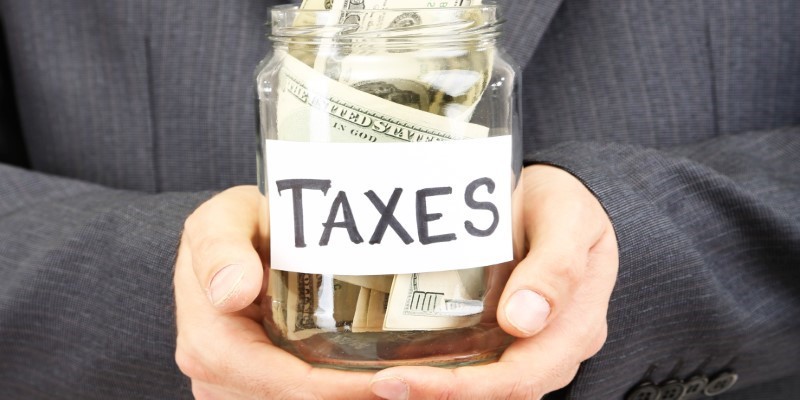One of the most important aspects of running a business is learning about managing and planning for taxation. While companies have to worry about direct taxes, they pass indirect tax down to customers. There are different calculation methods through which you can collect taxes. The most common type of collection is against a flat percentage.

So, if you want to know more about indirect taxation, please continue reading to learn more.
What is the Indirect Tax Definition?
An indirect tax is a tax you must pay the government. It usually carries over from an entity along the goods or services supply chain. In terms of definition, the manufacturer or retailer should pay, but they pass it down to the customer. The price of the good or service they provide includes that tax percentage.
How Does it Work?
So consider a retailer selling you their goods or services. You typically pay for that, considering the quality of the goods or the service. The retailer has already included the tax in the price of the goods or services. After a cycle, the retailer then pays that percentage amount back to the government.
This tax is also known as excise, consumption, or transaction tax. The most common types of goods that are subject to this tax are liquor, fuel, cigarettes, etc. Every time you buy such goods, you are actually paying indirect tax for your retailer.
Different Types of Indirect Tax
Following are the three main types of Indirect Taxes.
- Sales and Services.
- Custom and Excise.
- Activity Based.
Let's discuss each of them one by one.
Sales and Services
You can usually find these taxes on receipt after completing the transaction or acquiring/completing a service.
Valued added Tax (VAT) While this type of tax is added or calculated at each step of the supply chain, adding value to the final product, it is mainly paid by the consumer. Hungary, Sweden, and Croatia are some countries that pay one of the highest amounts of VAT.
Goods and Services Tax GST You will pay this tax for the delivery of goods and services that you receive. Most of the time, when you apply GST, the government is designing it to replace more than one type of indirect tax to avoid confusion or overpaying.
Sales TaxAgain, you add this tax not at each stage and also do not pay until any good or service is sold. So, at the point of sale, the consumer ends up paying for it. In the US, they do add it based on state or region, and it might add up.

Custom and Excise Tax
This type of indirect tax is based on the regulations and rules set by the government.
Import DutiesThe primary purpose of this tax is to protect the local market and businesses, and hence, it depends on international policy. Most individuals know it commonly as tariffs, and WCO regulates it by standardizing the system of identifying different groups.
Excise DutiesThese taxes are specific to certain goods like alcohol, beverages, cigarettes, etc. These duties increase the price of such vices and apply the increase to healthcare and welfare projects.
Gas or Fuel TaxesThis is another point-of-sale tax that you apply to fuel you use every day. Most of the time, you can add federal and state excise duties to the final price of the fuel.
Activity Based
Most of these taxes are also based on influencing behavior.
Environmental TaxesYou implement this tax on anything that may have a negative effect on the environment, specifically to discourage any sort of pollution. Furthermore, they are taxed more than regular taxes to deter unsustainable practices. So landfill waste and some pollutants are included.
Financial Transaction TaxFTT is applied more on the trade side of things for items such as currency exchanges, stocks, and some of the derivatives from financial dealings.
Importance of a Tax Professional
In the previous section, we discussed indirect taxation in detail and its different types. For businesses and manufacturing concerns, this is a necessary term and payment. Though knowing the nuances is essential, a business shouldn't delve too deep into it as it has other things to take care of. It is better to let the professionals do their work in these scenarios.

The main purpose of these professionals is to help these companies keep proper records, such as remit sales so that they can pay the proper amount of taxes. Furthermore, this helps the entities gain the maximum amount of tax credits.
In the Case of Customs and Excise Duty
The tax professionals will assist the business in meeting different standards. Compliance and regulatory standards are encompassed in this matter. They need to fulfil them to avoid penalties that may penalize their business.
In Case of Activity Based Taxes
The categories in these taxes fall under financial transaction and environmental taxes and are evolving constantly based on new knowledge. If businesses and companies arent fully aware, it may cause them massive implications. Tax professionals are essential in making sure they know what they should do.
Furthermore, the professionals help them update with the latest information and help them file for proper taxes and credits to maximize their profit. It also allows retailers and businesses to transfer the appropriate amounts of these taxes to the consumer.
Final Words
It is now much clearer what indirect tax is and how it affects a consumer. As most of the time a consumer has to pay this tax, companies and businesses should be aware of the amount of service or goods they are charging. They should create a fine balance between the amount of tax they have to pay the government and the amount of profit they are making.
After all, if the increase is too much, making the product or service too expensive, the client or customer may go somewhere else.




